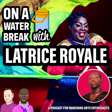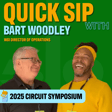
On A Water Break with 4th Block Music
Go On A Water Break with 4th Block Founders and creators Lou Rosen & Bronson Gold. 4th Block has taken their passion for the Marching Arts and turned it into a full music production garage band!
Guests:
4th Block - @4thblock_music
Lou Rosen - @lourosenmusic
Bronson Gold - @bronsonau
Listen to the main episode to keep up on everything going on in the marching arts with our hosts:
Jackie Brown - @spintronixguard
Stephen McCarrick - @stephenmccarick
Cindy Barry - @leandermomma
Nicole Younger - @o2bnpjs & @thecookoutcg
Trevor Bailey - @t_pain151
Trish O’Shea - @trishdish1002
Beth Beccone - @bether7189
Chris Rutt - @wildhornbrass1
Cynthia Bernard - @cynthiabern
Ashlee Amos - @famousamossss_
Theo Harrison - @harrisontheo07
Stephanie Click - @stephanieclick
Whitney Stone - @dancerwhit
Justin Surface - @J_dex07
Ashley Tran - @itsashleytran
Jack Goudreau - @goudreau_
Ricardo Robinson-Shinall - @ricardorrobinson
Callie Quire - @cnquire
Austin Hall - @Austin_hall10
Jose Montes - @joeymontes57
Music provided by leydamusic.com Follow him @josh.leyda
Avatars provided by @tch.makes.art
#marchingband #colorguard #dci #podcast #onawaterbreak



















